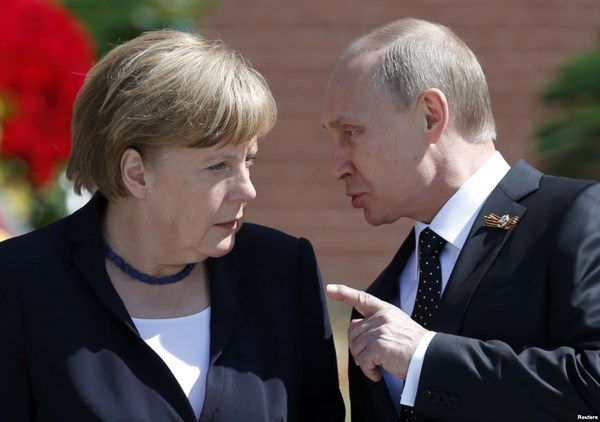Putin refuses to explain to Merkel situation with Navalny’s poisoning
Vladimir Putin does not plan to issue any statements in connection with the poisoning of Alexei Navalny, who, according to German experts, was poisoned with a Soviet-era nerve agent Novichok.
The Kremlin "sees no reason" for comments from the head of state, presidential spokesman Dmitry Peskov said on Thursday.
The day before , German Chancellor Angela Merkel demanded an explanation of what happened, calling the poisoning of Navalny an "attempt to silence him".
At the moment, there have been no contacts between Putin and Merkel, Peskov said.
"If one of the parties deems it necessary, such contacts can take place," he added, explicitly hinting that if the chancellor wants to talk, she can call Putin herself.
Commenting on the statement from the Bundestag that Russia and Germany face an "ice age" in relations if Moscow does not give clarification, Peskov said: "Both the Kremlin, our doctors, our specialists from the very first day explained this situation. And one must be deaf in order not to hear it."
"All the tests that were taken, all the biological samples and so on did not let our specialists - doctors, toxicologists, and so on - to identify any poisonous substances," he said.
Russia, according to Peskov, wants to get German data, according to which, the poison in Navalny’s body was found "without a doubt."
"Yesterday, we heard from Berlin that a poisonous substance has been clearly established, moreover, it is stated that it is a chemical poisoning substance of neuroparalytic action. If this is the case, we need to know for our pre-investigation procedures what our German colleagues have established. We hope that we will get this information," Peskov said.
He added that the Kremlin sees no reason for the West to introduce new sanctions against Russia and the Nord Stream 2 project in particular.
"We do not understand what the reason for any sanctions could be," Peskov said, adding that, in general, Moscow considers "sanctions talk and sanctions language absolutely unacceptable."
On Wednesday, the German government, citing the Bundeswehr laboratory, announced that traces of poison from the group of Novichok nerve agents were found in the body of Navalny.
The first use of Novichok was reported in March 2018 after poisoning of Sergei and Yulia Skripal.
Former GRU (Russia's Main Intelligence Directorate) colonel Sergei Skripal, who had been convicted in Russia for treason, and his daughter were both found at a restaurant in Salisbury with signs of severe poisoning. The British authorities believe that Russia was behind the crime.
Merkel called on the Russian authorities to give explanations on the situation with Navalny. The statement was supported by the British government and the US administration, which said it planned to "find those responsible" for the poisoning "wherever the investigation may lead".
